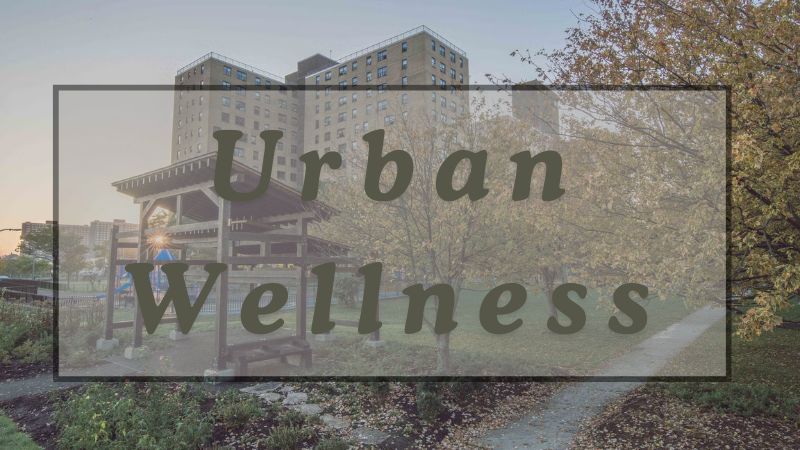Urban wellness refers to the holistic health and well-being of individuals living in urban environments. It encompasses various aspects of health, including physical, mental, social, environmental, occupational, and financial wellness. As cities continue to grow and evolve, the importance of maintaining and improving urban wellness has become increasingly significant.
Importance of Urban Wellness
The significance of urban wellness cannot be overstated. With more than half of the global population residing in urban areas, the quality of life in cities directly impacts the overall health of a vast number of people. Ensuring urban wellness is crucial for fostering healthy, productive, and sustainable communities.
The Evolution of Urban Wellness
Urban wellness has evolved in response to the dynamic nature of city living. Historically, urbanization brought about numerous challenges, such as overcrowding, pollution, and inadequate infrastructure. Over time, initiatives aimed at improving living conditions, public health, and community engagement have emerged, shaping the modern concept of urban wellness.
Overview of Urban Challenges
Cities present unique challenges that can affect wellness. These include high levels of pollution, noise, limited green spaces, social isolation, and the fast-paced lifestyle associated with urban living. Addressing these challenges is essential for promoting the overall well-being of urban residents.
Types and Categories of Urban Wellness
Physical Wellness
Physical wellness in urban settings involves maintaining a healthy body through exercise, nutrition, and regular medical check-ups. Urban residents often face challenges like limited access to recreational areas and high levels of pollution, which can impact physical health.
Mental Wellness
Mental wellness is crucial for urban dwellers who are frequently exposed to high levels of stress due to work, noise, and the fast-paced nature of city life. But, mental wellness strategies include stress management techniques, access to mental health services, and community support systems.
Social Wellness
Social wellness involves building and maintaining healthy relationships and a strong support network. Urban environments can sometimes foster feelings of isolation; thus, creating opportunities for social interaction is vital.
Environmental Wellness
Environmental wellness focuses on the relationship between a person and their surroundings. In cities, this includes the quality of air and water, access to green spaces, and efforts to reduce pollution and waste.
Occupational Wellness
Occupational wellness is about finding balance and satisfaction in one’s work life. Urban professionals often deal with high-stress jobs, making it essential to promote work-life balance and job satisfaction.
Financial Wellness
Financial wellness involves managing economic resources effectively to live a healthy and stress-free life. Urban residents often face higher living costs, making financial planning and education critical components of urban wellness.

Symptoms and Signs of Poor Urban Wellness
Physical Health Symptoms
Poor urban wellness can manifest in various physical symptoms, including chronic fatigue, frequent illnesses, and reduced physical fitness due to lack of exercise and exposure to pollutants.
Mental Health Symptoms
Mental health symptoms associated with poor urban wellness include anxiety, depression, and burnout. These can be exacerbated by the constant stimuli and pressures of urban living.
Social Isolation Indicators
Signs of social isolation in urban settings include a lack of meaningful social interactions, feelings of loneliness, and detachment from community activities.
Environmental Stressors
Environmental stressors such as high noise levels, poor air quality, and inadequate housing can contribute to urban stress, impacting overall wellness.
Occupational Burnout Signs
Occupational burnout is characterized by chronic job stress, exhaustion, and a sense of inefficacy. It is a common issue among urban workers in high-pressure environments.
Financial Stress Indicators
Financial stress can lead to symptoms like constant worry about money, inability to pay bills, and a lack of financial security, all of which are prevalent in expensive urban settings.
Causes and Risk Factors
Biological Factors
Biological factors influencing urban wellness include genetics, pre-existing health conditions, and individual physical resilience. These factors can affect how one responds to urban stressors.
Environmental Factors
Environmental factors such as pollution, noise, and limited access to natural spaces significantly impact urban wellness. Urban planning and policies play a crucial role in mitigating these factors.
Lifestyle Factors
Lifestyle choices, including diet, physical activity, and substance use, are critical determinants of urban wellness. Urban environments often provide both opportunities and barriers to healthy living.
Socioeconomic Factors
Socioeconomic status influences access to healthcare, education, and nutritious food, all of which are essential for maintaining wellness in urban areas.
Technological Factors
While technology can enhance urban living, it also poses risks such as increased screen time and reduced physical activity, which can negatively impact wellness.
Diagnosis and Tests
Physical Health Assessments
Regular health check-ups, screenings, and fitness assessments are crucial for detecting and addressing physical health issues in urban populations.
Mental Health Evaluations
Mental health evaluations, including counseling sessions and psychological assessments, help identify and treat mental health conditions exacerbated by urban stressors.
Social Connectivity Measures
Social connectivity measures, such as surveys and community engagement metrics, assess the strength of social networks and identify areas for improvement.
Environmental Quality Tests
Environmental quality tests, including air and water quality assessments, are essential for identifying pollution levels and their impact on urban wellness.
Occupational Health Assessments
Occupational health assessments evaluate workplace conditions, job stress levels, and employee well-being, helping to promote healthier work environments.
Financial Health Reviews
Financial health reviews involve analyzing an individual’s economic status, budgeting practices, and financial planning to improve financial stability and reduce stress.
Treatment Options
Medical Treatments
Medical treatments for urban wellness issues include medication, physical therapy, and surgery for various health conditions exacerbated by urban living.
Psychological Therapies
Psychological therapies, such as cognitive-behavioral therapy (CBT) and mindfulness practices, are effective in managing stress, anxiety, and depression among urban residents.
Social Support Programs
Social support programs, including community centers and support groups, play a vital role in enhancing social wellness and reducing feelings of isolation.
Environmental Interventions
Environmental interventions focus on improving urban infrastructure, increasing green spaces, and implementing pollution control measures to enhance environmental wellness.
Occupational Health Programs
Occupational health programs aim to reduce job stress through initiatives like flexible working hours, wellness programs, and ergonomic improvements in the workplace.
Financial Counseling
Financial counseling provides guidance on budgeting, debt management, and financial planning to help urban residents achieve financial wellness.
Preventive Measures
Regular Health Check-ups
Regular health check-ups and screenings help detect and prevent health issues early, contributing to better physical wellness in urban settings.
Mental Health Maintenance
Mental health maintenance practices, such as regular therapy sessions, mindfulness, and stress management techniques, are crucial for maintaining mental wellness.
Social Engagement Activities
Social engagement activities, including community events, clubs, and volunteer opportunities, foster social connections and reduce isolation.
Environmental Awareness
Environmental awareness campaigns educate urban residents on the importance of maintaining a clean and healthy environment, promoting sustainable practices.
Occupational Balance
Achieving occupational balance through time management, setting boundaries, and ensuring adequate rest and recreation helps prevent burnout and enhances job satisfaction.
Financial Planning
Financial planning involves creating a budget, saving for the future, and managing expenses effectively to achieve financial stability and reduce stress.
Personal Stories or Case Studies
Case Study: Overcoming Physical Health Challenges in the City
This case study explores the journey of an individual who improved their physical health despite the challenges of living in a polluted urban environment.
Case Study: Managing Urban Stress
An individual shares their experience of managing high stress levels in a bustling city through mindfulness and lifestyle changes.
Case Study: Building Social Networks in Urban Areas
A resident describes how they built a strong social network and reduced feelings of isolation by participating in community activities.
Case Study: Improving Urban Environmental Quality
A community initiative that successfully improved local air quality and increased green spaces in an urban neighborhood.
Case Study: Achieving Occupational Wellness in a High-Stress Job
A professional shares their strategies for maintaining occupational wellness while working in a demanding urban job.
Case Study: Financial Health in Urban Settings
An individual recounts their journey to financial wellness through effective budgeting and financial planning in an expensive city.
Expert Insights
Interview with a Public Health Expert
A public health expert discusses the challenges and strategies for promoting urban wellness in modern cities.
Insights from a Psychologist
A psychologist provides advice on managing mental health in urban environments and coping with city-induced stress.
Sociologist’s Perspective on Urban Communities
A sociologist explains the importance of social networks and community engagement for urban wellness.
Environmental Scientist’s View on Urban Living
An environmental scientist highlights the impact of urban environments on health and the importance of sustainable practices.
Occupational Health Specialist’s Advice
An occupational health specialist shares tips for achieving a healthy work-life balance in high-pressure urban jobs.
Financial Advisor’s Tips
A financial advisor offers practical advice on managing finances and achieving financial wellness in urban settings.
Conclusion
Summary of Key Points
Urban wellness encompasses various aspects of health, including physical, mental, social, environmental, occupational, and financial wellness. Addressing the unique challenges of urban living is essential for promoting overall well-being.
Call to Action for Urban Wellness Initiatives
Individuals, communities, and policymakers must collaborate to implement effective strategies for enhancing urban wellness. By prioritizing health and well-being, cities can become more livable and sustainable for all residents.



